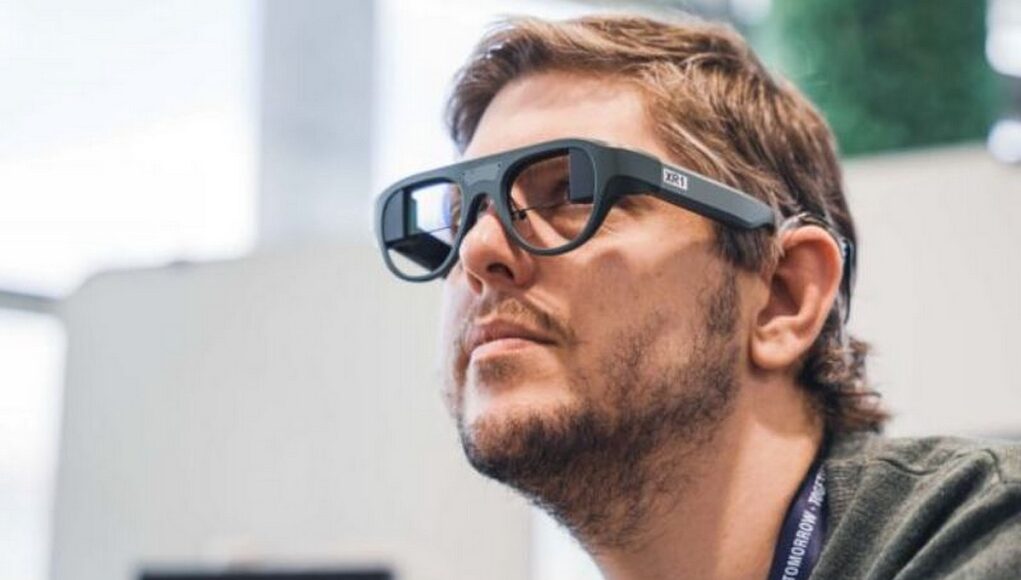Defence Equipment & Support (DE&S) is piloting a set of augmented reality (AR) glasses designed to assist staff with hearing difficulties, according to a recent announcement.
These glasses project real-time conversation text onto the lens, offering an alternative to lip reading or relying on British Sign Language (BSL) interpreters.
The three-month trial, taking place at DE&S headquarters in Abbey Wood, Bristol, aims to assess whether the £900-per-pair glasses, developed by XRAI Glass, could improve accessibility for employees with hearing loss. The technology is also capable of translating conversations into over 90 languages, broadening its potential applications.
Andy Start, DE&S CEO, outlined the importance of the pilot: “At DE&S, we are committed to an inclusive working environment where everyone can thrive and reach their full potential. This pilot will determine if this technology can help staff do their job to the best of their ability.”
Under the £10,000 contract, eight sets of AR glasses will be available to members of DE&S’s Deaf and Impaired Hearing Network, who have already had the opportunity to try them out at a demonstration event. The pilot will gather feedback from various scenarios, such as one-on-one meetings, group discussions, and environments with background noise.
James Quinton-Prior, a commercial manager within Engineering Delivery Partner (EDP), expressed optimism about the trial: “I’ve been really impressed and see these glasses as a potential tool to support the deaf and hard of hearing community. It’s a step toward removing barriers and helping us all progress in our careers.”
Catherine Wrigley, who works in Helicopter Safety Governance, highlighted the practical advantages of the glasses in meetings: “Having subtitles in my line of sight will help me follow conversations without having to look back and forth between speakers. Other subtitle software often produces inaccuracies, so this could be a real improvement.”
The pilot is led by Chris Chennell, senior architect in the DE&S Digital delivery team, who acknowledged the learning opportunity the project has provided: “The initial feedback has been encouraging, and the next three months will help us determine how this technology, or other solutions, can best support our colleagues with hearing loss.”
If the trial proves successful, the glasses could see a wider rollout across the Ministry of Defence and potentially other government departments, offering more options for employees with hearing difficulties.














Great idea and one of the technologies that’s set to take off over the next decade and beyond. My only concern is how quickly does it process actual language, I hope it’s better than the tv channels manage on live broadcasts where the delay can be 5 to 10 seconds making it unusable for those of us who’s hearing is a little compromised through age. Often displayed very badly too as one tries to follow the text as new lines replace old ones anything but smoothly or logically. Smooth moving text shouldn’t be too difficult to achieve surely. Nothing worse than distracting silent TVs in pubs that you just can’t help but look at unfortunately but then impossible to read comfortably the moving subtitles that never stay still for long. Reminds me of CEEFAX except actually far worse.
Spy, you are certainly correct in regard to the slight delay in the text coming up. One thing i have never quite understood about the delays, is at “sprorting” events when they play/ sign the national anthems, i always wonder why they haven’t got a “pre-loaded’ batch of text of the Anthem that they could slot in and it would be in time with the singing and music
Hi, Spy (with my little eye...) I’ve go through four pairs of hearing aids over 20 years and, as you may be aware, the biggest problem is background noise. Especially in a large room. So I should imagine the plobloom Mark highlighted, live speech-to text, would be even more nifficut when txlatetting from Englous to another langwhich. Good look with it…
Spy, completely agree. I recently got to trial these in a meeting with some Japanese colleagues and whilst not 100% there, it was far more natural than relying on translators as I have previously. Definitely an improvement.
As ever the more we trial and improve this kind of tech the better. Especially in the rear echelons, let’s perfect the tech in Bristol talking contracts and then use it where it really matters on the front line. But you are completely right the pause remains awkward, just a little less awkward than waiting for someone to word for word translate.